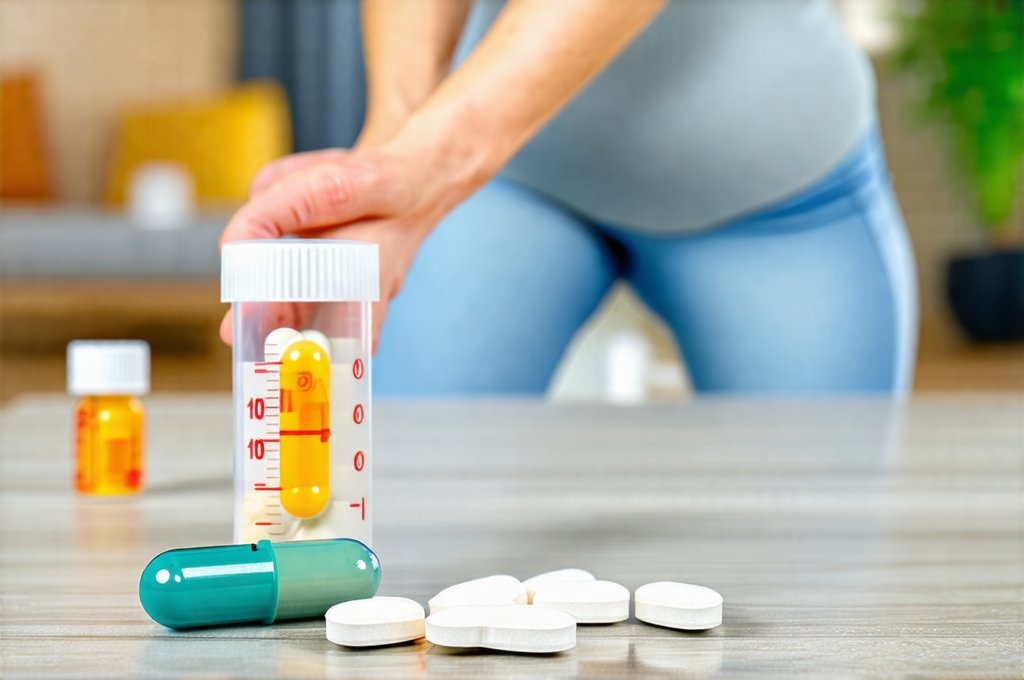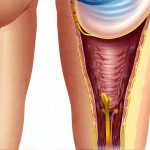Urination is a fundamental bodily function, yet experiencing pain during it can be deeply unsettling and significantly impact quality of life. Often, the first reaction is to seek quick relief through strong medications, but this isn’t always necessary – or even desirable. Many instances of mild-to-moderate urinary discomfort can be effectively managed with gentle, non-pharmacological approaches that address underlying causes and promote natural healing. This article will explore a range of strategies for reducing pain during urination without resorting to potent pharmaceuticals, focusing on lifestyle adjustments, preventative measures, and supportive therapies designed to alleviate symptoms and restore comfort.
It’s crucial to understand that the sensation of pain while urinating can stem from various sources, ranging from simple dehydration to more complex conditions like urinary tract infections (UTIs) or inflammation. Self-treating persistent or severe pain is never recommended; this guide aims to provide relief for milder discomfort and preventative strategies but should not replace professional medical evaluation. Recognizing the potential causes – and seeking appropriate medical attention when needed – is the first step towards effective management. This exploration will emphasize empowering individuals with knowledge about their bodies and offering practical methods to support urinary health, minimizing discomfort and promoting overall well-being.
Understanding the Sources of Discomfort
Pinpointing the cause of pain during urination can help tailor your approach to relief. While a UTI is perhaps the most commonly associated reason, it’s far from the only possibility. Other factors include: – Dehydration: Insufficient fluid intake concentrates urine, making it more irritating to the bladder and urethra. – Dietary Irritants: Certain foods and beverages (spicy meals, caffeine, alcohol) can inflame the urinary tract in sensitive individuals. – Bladder Sensitivity: Some people naturally have more sensitive bladders than others, leading to discomfort with even normal urination. – Inflammation: Inflammation from conditions like interstitial cystitis or urethritis causes pain and urgency. – Sexual Activity: Friction during intercourse can sometimes irritate the urethra, particularly in women. Recognizing these potential triggers allows for targeted preventative measures and symptom management. It’s important to remember that persistent pain warrants a visit to a healthcare professional to rule out underlying medical conditions requiring specific treatment. If you are experiencing discomfort during urination without fever, understanding the root cause is key.
A key aspect of managing urinary discomfort is understanding the difference between acute and chronic pain. Acute pain, like that experienced during a mild UTI or after vigorous exercise, typically resolves quickly with simple interventions. Chronic pain, on the other hand, persists for weeks, months, or even years, often indicating a more complex underlying issue. Self-treating chronic pain without professional guidance can be detrimental; it’s vital to seek medical evaluation and develop a long-term management plan tailored to your specific condition. Ignoring persistent symptoms only allows them to worsen over time and can potentially lead to complications.
Hydration & Dietary Adjustments for Urinary Health
Adequate hydration is arguably the most fundamental step in preventing and alleviating urinary discomfort. When you’re well-hydrated, urine becomes diluted, reducing its irritant potential and helping flush out bacteria. Aim for at least eight glasses of water per day, adjusting based on your activity level and climate. Pay attention to your body’s signals – thirst is an indicator that you’re already somewhat dehydrated. Beyond plain water, herbal teas (like chamomile or ginger) can be soothing additions, but avoid excessive caffeine or alcohol, which are known bladder irritants.
Dietary modifications can also play a significant role in reducing urinary discomfort. Certain foods and beverages exacerbate symptoms in sensitive individuals. Common culprits include: – Spicy Foods: Capsaicin, the compound that gives chili peppers their heat, can irritate the bladder. – Citrus Fruits & Juices: The acidity of citrus fruits can aggravate bladder sensitivity. – Caffeine: A diuretic, caffeine can concentrate urine and increase urgency. – Alcohol: Similar to caffeine, alcohol is a diuretic with potential irritant effects. – Artificial Sweeteners: Some artificial sweeteners have been linked to bladder discomfort in susceptible individuals. Identifying and eliminating these triggers – through careful observation and potentially an elimination diet – can significantly reduce symptoms. Remember that everyone’s tolerance differs; what bothers one person may not affect another. If you suspect a UTI, understanding how to reduce odor during the episode can offer some peace of mind.
Soothing Herbal Remedies & Supportive Therapies
While not a substitute for medical treatment, certain herbal remedies and supportive therapies may provide symptomatic relief. D-mannose, a naturally occurring sugar found in cranberries and other fruits, has shown promise in preventing UTI recurrence by inhibiting bacterial adhesion to the urinary tract walls. However, it’s crucial to note that D-mannose is preventative rather than curative; it won’t treat an existing infection. Similarly, cranberry juice (unsweetened) may offer mild benefits due to its potential antibacterial properties, but excessive consumption can be problematic for those with kidney issues.
Warm compresses applied to the lower abdomen or pelvic area can also help soothe bladder discomfort and reduce muscle spasms. Gentle exercise, such as walking or yoga, can promote circulation and overall well-being, potentially alleviating tension that contributes to urinary symptoms. Pelvic floor exercises (Kegels) strengthen the muscles supporting the bladder and urethra, improving control and reducing urgency. It’s essential to practice Kegels correctly – consult a physiotherapist specializing in pelvic health for guidance if needed. Always discuss any herbal remedies or alternative therapies with your healthcare provider before starting them, especially if you have underlying medical conditions or are taking medications. If pain occurs after intimacy, learning how to reduce bladder pain can be beneficial.
Lifestyle Modifications & Preventative Measures
Preventing urinary discomfort often involves adopting proactive lifestyle habits. Practicing good hygiene is paramount – wiping from front to back after using the toilet helps prevent bacterial contamination of the urethra. Wearing breathable cotton underwear allows for better airflow, reducing moisture and minimizing bacterial growth. Avoid tight-fitting clothing, which can trap moisture and irritate the area. Urinating immediately after sexual activity helps flush out any bacteria that may have entered the urethra.
Furthermore, avoiding prolonged sitting or standing – and taking regular bathroom breaks – prevents bladder overfill and reduces pressure on the urinary tract. Addressing constipation is also crucial, as it can put extra strain on the pelvic floor muscles and contribute to urinary discomfort. A diet rich in fiber and adequate hydration helps promote regularity. Finally, managing stress levels is important, as chronic stress can weaken the immune system and increase susceptibility to infections. Incorporating relaxation techniques like meditation or deep breathing exercises can help mitigate the impact of stress on overall health. If you find yourself straining to start urination, it’s important to investigate potential causes.
When To Seek Medical Attention
While this article focuses on managing mild-to-moderate urinary discomfort without strong medications, it’s crucial to recognize when professional medical attention is necessary. Never self-treat persistent or severe pain, as it could indicate a serious underlying condition. Consult your healthcare provider immediately if you experience any of the following: – Fever or chills – Back pain or flank pain – Blood in your urine – Difficulty urinating or feeling like you can’t empty your bladder completely – Frequent urination accompanied by burning sensation or urgency – Symptoms that worsen despite self-care measures These symptoms could indicate a UTI, kidney infection, sexually transmitted infection (STI), or other medical condition requiring prompt diagnosis and treatment. Early intervention is crucial to prevent complications and ensure optimal health. Remember, this information is for general knowledge and informational purposes only, and does not constitute medical advice. It is essential to consult with a qualified healthcare professional for any health concerns or before making any decisions related to your health or treatment. When experiencing anxiety about UTIs, remember how to reduce UTI anxiety during busy days is possible with the right strategies.





















